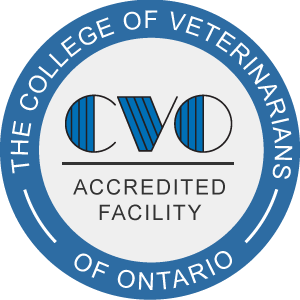Illustrated Articles
-
Cetirizine (Zyrtec®, Reactine®) is an antihistamine used off label to treat and prevent pruritus (itching) associated with atopic dermatitis, urticaria (hives), and insect bite reactions in cats and dogs. It may also be used for respiratory allergy symptoms.
-
Cetyl myristoleate is a supplement given by mouth and is used over the counter to treat osteoarthritis, most commonly in dogs. Give as directed by your veterinarian. Side effects are uncommon but may include gastrointestinal upset. Use cautiously in debilitated, pregnant, or lactating pets. If a negative reaction occurs, please call your veterinary office.
-
Chamomile is given by mouth or applied topically and is used off-label and over the counter to treat inflammatory skin conditions, gastrointestinal upset, and anxiety. Give as directed by your veterinarian. Side effects are uncommon if used at the proper dose, but may include vomiting, diarrhea, or skin irritation. Do not use in pets that are allergic to it or other plants in the daisy family. If a negative reaction occurs, please call your veterinary office.
-
Chemotherapy drugs are used to treat cancer and other conditions in people and animals, and often target and kill rapidly dividing cancer cells, but normal, healthy cells that grow quickly may also be affected. Side effects of ingestion can include stomach upset, neurological signs, bone marrow suppression, and organ damage.
-
Chlorambucil (brand names: Leukeran®, Chloraminophene®, Linfolysin®) is an immunosuppressive and anticancer medication used to treat certain cancers, such as leukemia, lymphoma, and multiple myeloma. It can also be used as a supplemental treatment for some immune-mediated diseases such as inflammatory bowel disease.
-
Chloramphenicol (brand names Chloromycetin®, Viceton®) is a broad-spectrum antibiotic used to treat many different bacterial infections in many species. Chloramphenicol comes as tablets, capsules, liquid suspension, and in an injectable form (chloramphenicol sodium succinate). Injectable forms will be administered by your veterinarian.
-
Chlorhexidine + ketoconazole topical is used to treat superficial skin infections or overgrowth in dogs and cats. When given as directed, side effects are rarely noted, but could include skin irritation. If you suspect an overdose or accidental ingestion, call your veterinary office immediately.
-
Chlorhexidine topical (brand names Chlorhex®, Novalsan®, ChlorhexiDerm®) is an antiseptic used to treat skin infections. It is used to treat surface bacterial and/or fungal skin infections in cats and dogs. This medication may be part of a combination product that includes other medications. Chlorhexidine topical comes in shampoo, liquid, ointment, and wipe form.
-
Chlorhexidine/hydrocortisone/trizEDTA topical (TrizCHLOR® 4HC) is a shampoo and spray conditioner used topically in cats, dogs, and horses to support animals with conditions such as superficial, itchy, bacterial and fungal skin infections (pyoderma); acute moist dermatitis (hotspots); and pododermatitis (skin infections of the foot).
-
Chlorhexidine/ketoconazole/TrizEDTA flush: otic (Mal-A-Ket® Plus) is a liquid antibacterial and antifungal solution used for topical treatment of localized bacterial and yeast infections in dogs and cats. The solution can be used specifically in the ears as a flush treatment.


